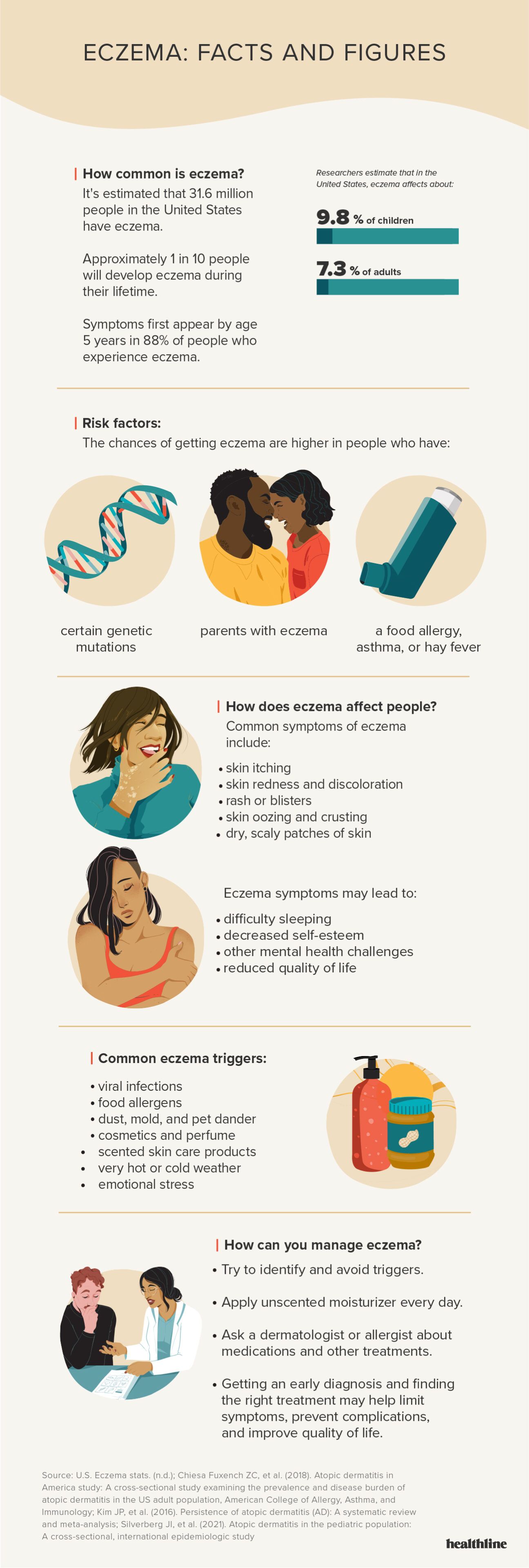Eczema is an inflammatory skin condition that may cause itching, scaly patches, and other symptoms.
Eczema is a chronic skin condition that’s also referred to as atopic dermatitis.
It typically develops between the ages of 2 months and 5 years, according to the American Academy of Dermatology Association. The condition often goes away by adolescence or adulthood in 80% of cases.
However, some adults may continue to have symptoms, and approximately 1 in 4 people experience eczema symptoms for the first time during adulthood.
This article outlines some key figures, symptoms, causes, and prevention methods for eczema.

Eczema is a skin condition that may cause discomfort and impact your mental health and quality of life. For example, the National Eczema Association (NEA) suggests that:
- 61% of people with eczema experience skin pain, such as a burning sensation
- 67% of children and one-third of adults with eczema experience sleep disturbances
- 1 in 4 adults with eczema report their overall health as poor
- 1 in 3 adults with eczema report experiencing difficulties in work or school
According to the NEA, you’re more likely to develop food allergies, allergic rhinitis, and asthma if you have eczema. More than 1 in 2 children with severe eczema will develop asthma, while adults are 2–4 times more likely to develop a food allergy or allergic rhinitis.
Treatment is key to managing symptoms, but it’s important to note that some trial and error will likely be required to establish the best treatment plan for you.
What race is eczema most common in?
The National Eczema Association states that adults who are multiracial or have light skin tones are more likely to have eczema. In the United States,
A
- genetic and immune differences between races that could affect the skin barrier
- less access to healthcare services for some people
- psychological stress attributed to factors such as discrimination
Who gets eczema the most?
It’s estimated that 4 in 5 people with eczema experience symptoms before the age of 6 years. Research on whether it affects males and females differently is mixed. The National Eczema Association notes that eczema affects children the same but that more adult females are affected.
What triggers eczema?
Eczema is an inflammatory skin condition that may affect your physical and mental well-being.
Early diagnosis and treatment are crucial to managing the condition. Speak with a healthcare professional like a dermatologist or allergist about eczema. They could help develop a treatment plan that’s right for you.
This may include medicated creams or ointments, antihistamines, light therapy, or other treatments.









